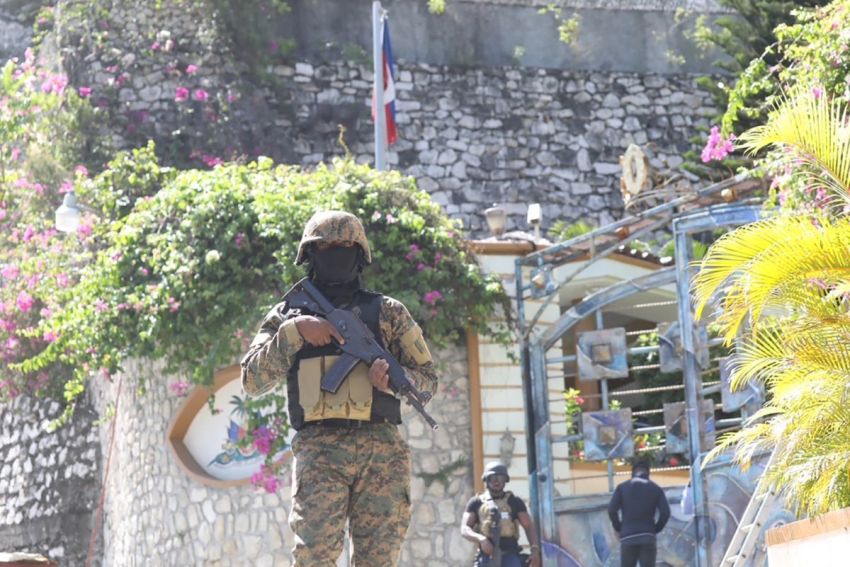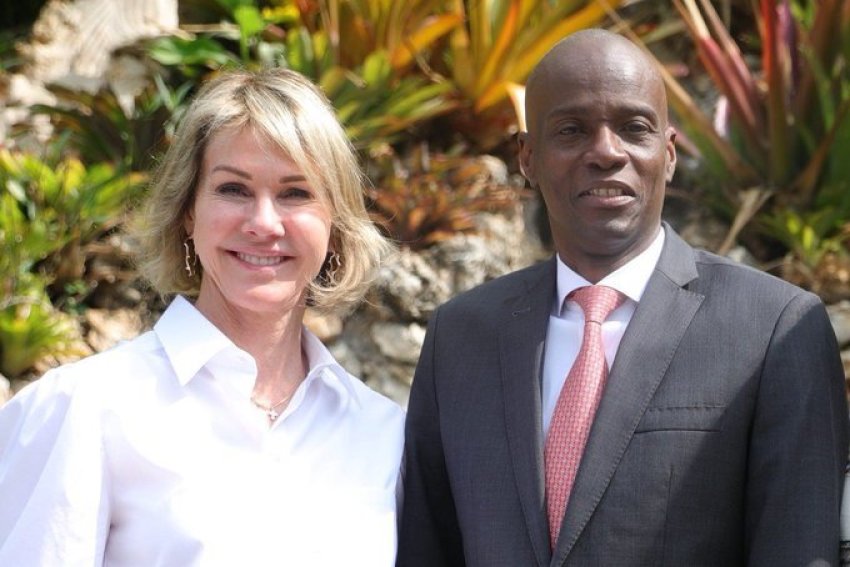Haiti’s Pres. Jovenel Moïse assassinated months after bishops urged him to step down

Haitian President Jovenel Moïse was assassinated Wednesday, and his wife was injured months after religious leaders called on him to step down as the country faces what some describe as a “descent into hell” amid rising political tensions and violence. He was 53.
Interim Premier Claude Joseph told The Associated Press that Moïse was assassinated in an attack on his private residence early Wednesday, which he described as a “hateful, inhumane and barbaric act.”
The late president’s wife, first lady Martine Moïse, was also shot and is currently hospitalized.
“The country’s security situation is under the control of the National Police of Haiti and the Armed Forces of Haiti,” Joseph said. “Democracy and the republic will win.”
In a message to the people of Haiti, White House Press Secretary Jen Psaki said in an interview with CNN Wednesday that Moïse’s assassination “is a tragic tragedy.”
“It’s a horrific crime and we’re so sorry for the loss that they are all suffering and going through as many of them are waking up this morning and hearing this news," she said. "And we stand ready and stand by them to provide any assistance that’s needed."
U.K. Prime Minister Boris Johnson was among the first world leaders to react to the killing of the Caribbean country’s head of state. He called the assassination “abhorrent.”
“I am shocked and saddened at the death of President Moïse. Our condolences are with his family and the people of Haiti. This is an abhorrent act and I call for calm at this time,” Johnson said in a statement on Twitter.
Jamaican Prime Minister Andrew Holness said in a statement that the assassination “is a stain on Haiti” and a “sorrowful time” for the Caribbean.
“This morning the world awoke to the shocking and tragic news of the assassination of Haiti’s President His Excellency Jovenel Moïse. I have met and spoken with President Moise many times and in all my interactions with him, particularly within the context of CARICOM, I found him to be a man committed to seeing Haiti take her place in the world,” Holness said. “This heinous act is a stain on Haiti and a sorrowful time for the region. May God be a special covering over his family and over the people of Haiti during this dark time in the nation’s history.”

Moïse was killed as he pursued an aggressive agenda that included rewriting the country’s Constitution, The New York Times reported. It was not a move that was supported by the United States or some local religious leaders. Critics feared that he was setting the country down a path toward authoritarian rule and threatened the nation's democracy.
Moïse was reportedly pushing for a Constitution that would grant Haiti’s leader immunity for any actions taken while in office. However, many Haitians felt a need for a new Constitution even if they were critical of Moïse's proposal.
“We need a system that works,” Moïse told The New York Times in March. “The system now doesn’t work. The president cannot work to deliver.”
The Bishops' Conference of Haiti said the proposed changes to the country’s Constitution while in the middle of a national socio-political crisis were not wise, Vatican News reports. In a Feb. 2 statement, the conference argued that violence had escalated under Moïse’s rule, and the Haitian people were bearing the brunt of it.
“The daily life of the Haitian people is reduced to death, murders, impunity and insecurity,” the Haitian Bishops' Conference wrote, according to Fides News Agency. “Discontent is everywhere, in almost all areas.”
In March, the Haitian Conference of Religious echoed the alarm raised by the country's bishops and called on Moïse to step down as his political opposition claimed that his five-year term had expired on Feb. 7.
"No serious decisions have been taken to alleviate the suffering of the people or to protect them from aggression," the CHR argued in the letter. “The only thing that seems to be of concern to you, is to carry out your so-called mandate at all costs, against the legitimate request of an entire people."
“One wonders, what is the point of clinging to power even illegitimately or illegally when more than half the population lives in conditions of chronic food insecurity?” they asked.
By April, the Catholic Archdiocese of Port-au-Prince said Haiti was facing a “descent into hell” after 10 people, including seven clergy members, were abducted by kidnappers demanding a $1 million ransom.
“For some time now, we have been witnessing the descent into hell of Haitian society,” the archdiocese said in a statement.
“The public authorities who are doing nothing to resolve this crisis are not immune from suspicion. We denounce complacency and complicity wherever it comes from,” the statement added.
Despite the calls for him to step down, Moïse maintained that his term would not expire until February 2022 because he wasn't sworn in until 2017.
A provisional president ruled Haiti for one year following controversial elections clouded by fraud allegations. Moïse had called for legislative and presidential elections to be held on Sept. 19, with a runoff scheduled for Nov. 21, Vatican News said. The government has been acting through continuous decrees.
In February, the U.S. State Department said that a new Haitian president should only take power once Moïse's term ends in February 2022.
In 2019, Haitians took to the streets to demand Moïse resign in light of allegations that the government misappropriated billions of dollars earmarked for reconstruction following a catastrophic earthquake in 2010 that killed 300,000 people and left between 1.5 million and 2 million people homeless.
With a Gross Domestic Product per capita of $1,149.50 and a Human Development Index ranking of 170 out of 189 countries in 2020, Haiti's economic and social development is hindered by political instability, governance issues and fragility, according to the World Bank. Haiti is the poorest country in the Latin America and Caribbean region and among the poorest countries in the world.



























